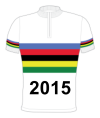El_Pistolero_07 a écrit :A l'époque Oleg faisait vraiment cycliste !
Il était cycliste pro...enfin le temps d'une course !
"Given that I now had a team, what was to stop me taking part in a race as a team member? I
got really excited about the idea and started training. Two-time Olympic champion Vyacheslav
Yekimov designed a six-month training program aimed at getting this old man of 38 ready for the
race. And I got going with it. In the mornings I rode my bike; in the evening I would spend time
with my family or studying the credit card market. The Tinkoff Credit Systems project had only just
begun.
Only Rina knows how much I suffered. The weather was rainy, but I had to be out of the
house for five to six hours per day. I would get completely soaked, but I persisted. I ended up with
massive boils on my backside, which I treated with antibiotics. What a deal! It was torture. I twisted
on the seat, alternating the pressure on my left and right buttocks because I could not sit normally.
I called Yekimov,
“Slava, what kinds of steps will I have to take to get a team started?”
He gave me some answers over the phone from Spain, but then asked,
“Listen, Oleg, why do you need to know all this?”
“I just want to.”
“But why?”
I did not have an answer to that question then, nor do I now. Let the reader decide. It is just
that I had made a promise to myself to get it done. As Alex Koretsky told me then, “I know… Once
you’ve set your mind on something…” I needed to do it—and so I made preparations.
I was bound and determined. It was incredibly difficult. The scariest part is the first two
weeks, when you are hit by a wave a fatigue. One day I had been riding and I lay down right next to
the highway, my strength drained. Some other cyclists stopped and asked if they could help. I
replied,
“Everything’s all right, let me just lie here for a while.”
Every day I would burn at least four thousand calories. Some days I would burn six or seven
thousand. That is a crazy amount of work. I would bike five or six hours at a time and on Sundays I
would do seven. In the evenings I swam with a coach for thirty minutes and spent another hour in
the gym. Essentially, my complete workout consisted of five hours on the bike and another two at
the recreation center. No dinners could have made up for the energy burned and I was dieting in any
case. For six months I constantly wanted to gorge myself. I did not drink any alcohol at all. These
were serious sacrifices for me. On the other hand, when I was getting ready for the race, I read a lot,
watched movies every night, and spent time with the kids.
When I started the program I weighed ninety-five kilos; by the end I weighed seventy-five. In
six months I had lost twenty kilos and I was ready to start.
The Race!
In May 2006, at the ages of 38, twenty-two years after I had quit my school’s cycling team, I
stood at the starting line of the international race, Five Rings. It was held in Moscow in honor of
Victory Day.
It was a 140-km long, 4.5-hour race through the Vorobyov Mountains, at speeds averaging
over forty kilometers per hour. I overcame each kilometer with difficulty, at one point even falling
behind and nearly leaving the track as I rode among the cars. As I pedaled along, though, I thought,
“I worked my ass off for six months to get here. I suffered. I lost sleep. I am not giving up
now!” I gathered all the strength that I had in me, caught up with the pack again, and finished the
race.
It is in moments like that that your character shows. That is how your character develops too.
It would be easier to simply quit the race—when you look at your speedometer and you see that
your pulse is 180 and you do not fully understand what is happening, but you realize that you are
screwed. My field of vision was blurry: the cyclists ahead of me were a mere smear of color; the
pain in my legs, my head—my whole body—was so intense that I was simply out of it. But at times
like that you just squeeze the handlebars even tighter, you push your feet into the pedals, and you
catch up. I even broke away for a lap. It was unrealistic of course to think that I could beat the
professionals in the race, but I did try. The athletes appreciated this. I simply could not backtrack—
if I had, I would not be able to respect myself now.
Journalists often ask me what my greatest achievement in life has been and they expect that I
will tell them about one of my business achievements. I always answer,
“Of course there are my three kids, Dasha, Pasha, and my biggest achievement Roma. But
after them, it would have to be my return to international sport—not to mention the fact that I
accomplished that at 38 years of age.”
Now I am uniquely placed to relate to Lance Armstrong, that stuck-up Texan, with whom I
am personally acquainted. A seven-time Tour de France champion, he returned to cycling when he
was 37 years old and, although he took only third place in 2009, he is still a shining example of how
sheer ambition can work miracles. After all, he did not return to the sport for the money, but for the
victories, emotions, and ambitions."
I'm just like anyone else, Oleg Tinkov, p. 155-156.



 Inspecteur en chef du top 200 posteurs
Inspecteur en chef du top 200 posteurs
